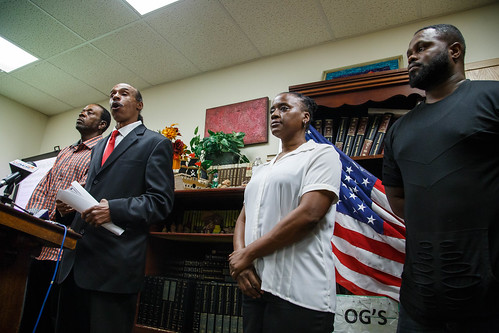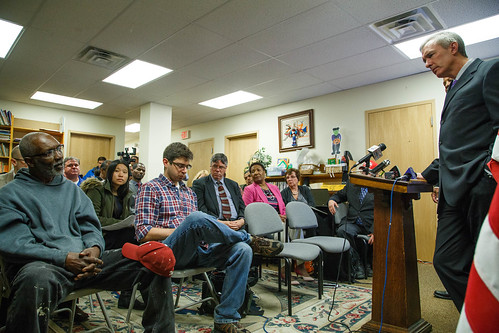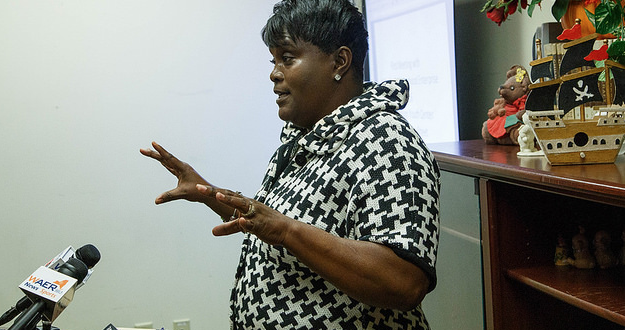Local agencies come together to discuss solutions
Community activist Mary Nelson brought together representatives from more than a dozen grassroots and community organizations in Syracuse to address the epidemic of poverty in the city.

Nelson said the goal of the event was to bring together agencies with similar goals to form partnerships with the Mary Nelson Youth Center.
The event grew from a conversation between representative John Katko and Bob Woodson, the president and founder of the Center for Neighborhood Enterprise in Washington, D.C. Woodson was interested in the Syracuse area and contacted Nelson to propose an affiliation with the center.
“[Woodson] contacted [Katko] and said ‘listen here, this is your area. Will you bless it?’ And he blessed it,” Nelson said.
During the forum, representative Katko spoke about some of the roots of poverty in Syracuse and solutions to it. “There’s absolutely a direct correlation between poverty and education,” he said. “You can’t teach kids in the inner city the way you do in the suburbs.”

Katko advocated for early literacy, crisis intervention and the importance of nutrition for kids. He also mentioned the tens of thousands of manufacturing jobs Central New York has lost over the past 30 years as a source of economic strife in the area today. Katko implored the community members to attend meetings for the I-81 reconstruction, to ensure that jobs go to local residents.
The highlight of the afternoon was a Skype call with Bob Woodson, whose flight to Syracuse from Washington had been cancelled.
He spoke and answered questions from the audience about the duty of grassroots organizations to do what “big-box” organizations (national groups and institutions) can’t do. Grassroots organizations, he said, have an advantage over national organizations because they are started in the communities that they serve, and thus know how to relate to the people there.
“The key to revitalizing any urban condition is identifying the Mary Nelsons – people in the same zip codes – but they aren’t funded. The money goes to outside organizations,” he said.
Representatives from some of those organizations, like Syracuse University and SUNY Upstate Medical University, were listening. Maxine Thompson, assistant vice president for diversity and inclusion at Upstate, asked what role institutions like hers can play in addressing urban issues in Syracuse.
Woodson suggested that they take some grassroots leaders under their wing and provide them with the resources and train them to then deliver services to the communities.
Nelson said she hopes to be able to connect the families she serves with the grassroots organizations that can help them.
“People think poverty is about money. Poverty is about resources,” she said. “People not knowing what’s out there for them.”
Nelson added that since she doesn’t receive funding to provide support, she wants to partner with organizations that do to point people in the right direction. Her focuses are education, health, career services, violence intervention and mentorship.
“I am giving myself to you. If you like what I’m doing, say ‘I want to partner,’” Nelson said.
— Article by Ashley McBride, The Stand staff reporter
 The Stand
The Stand


